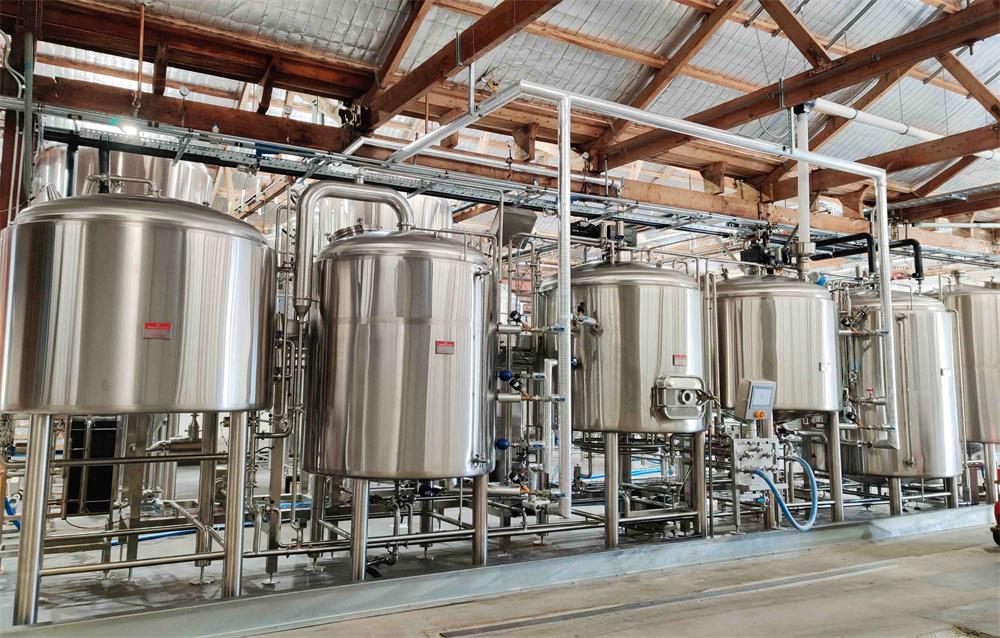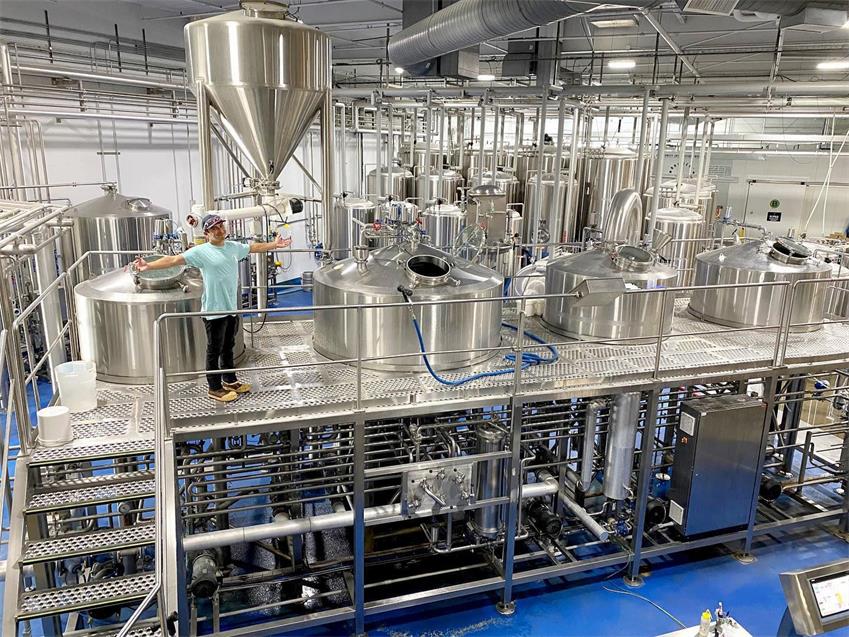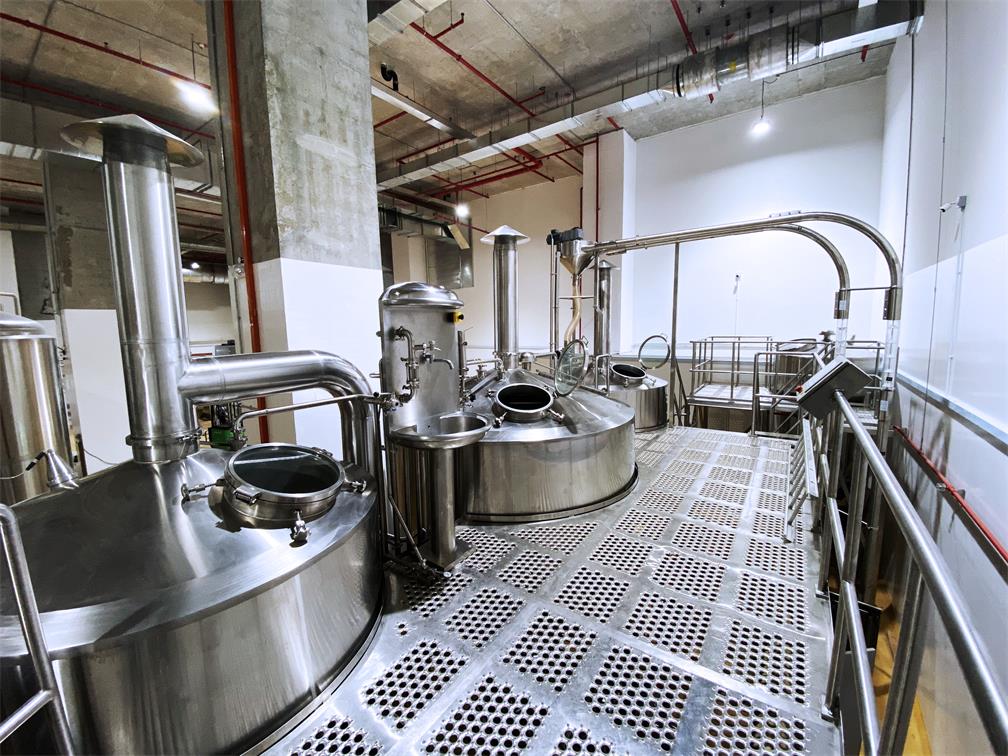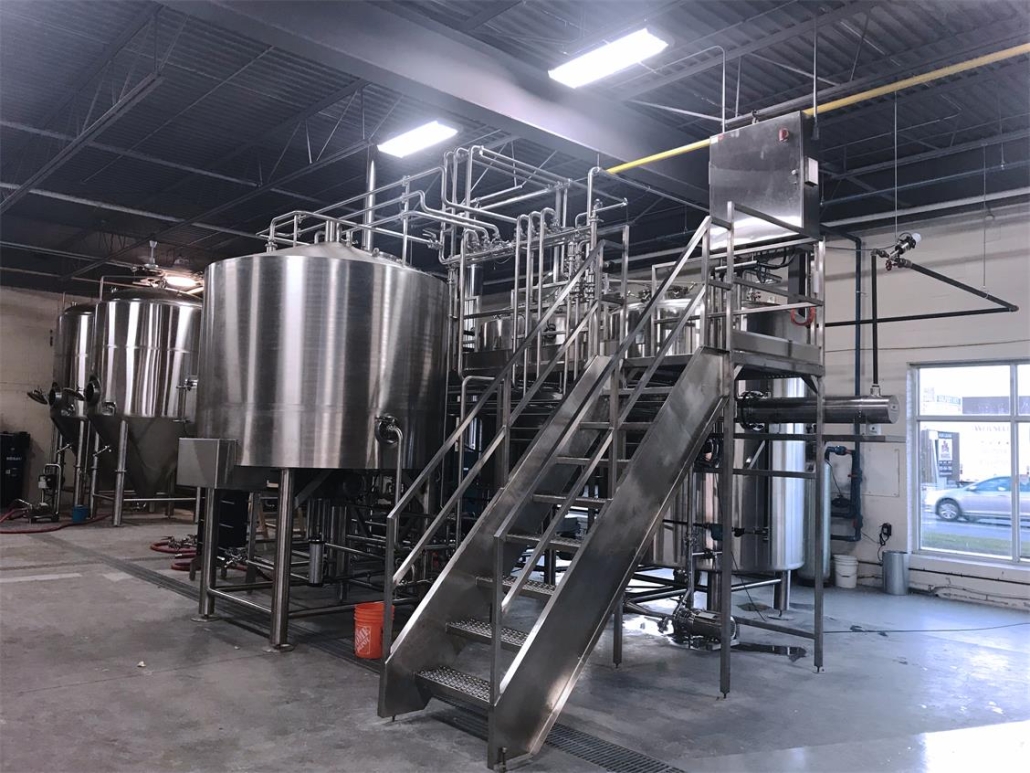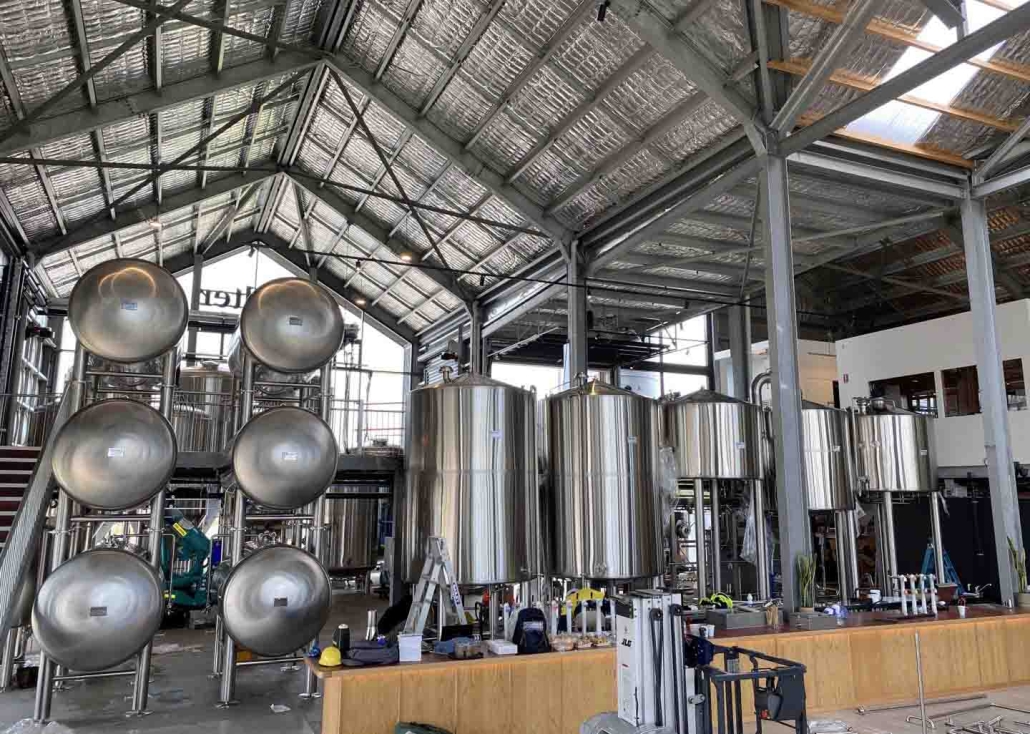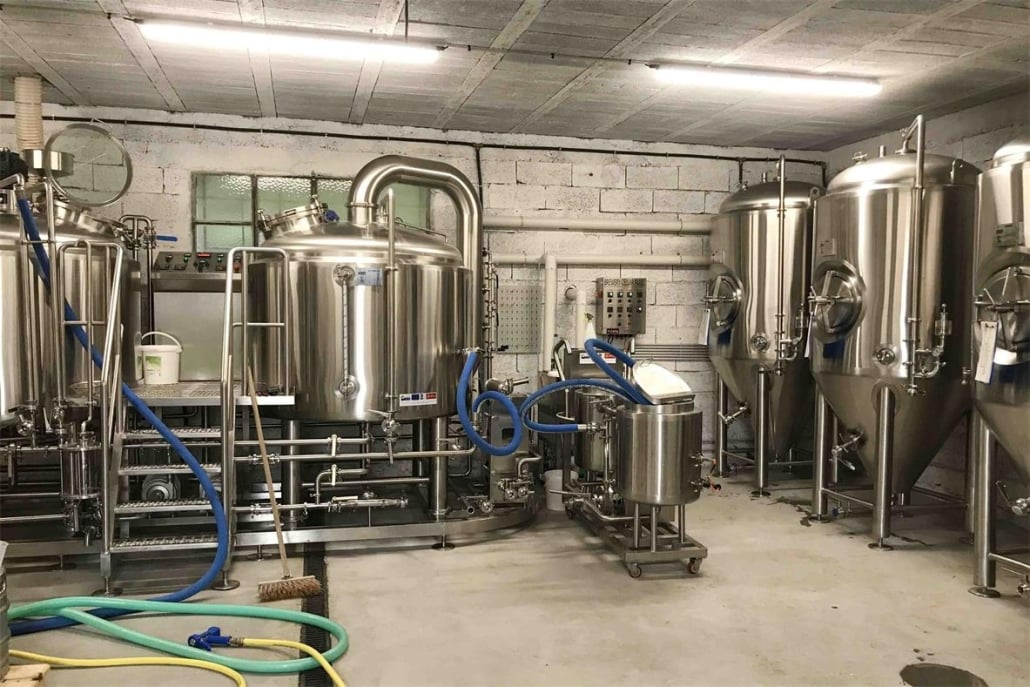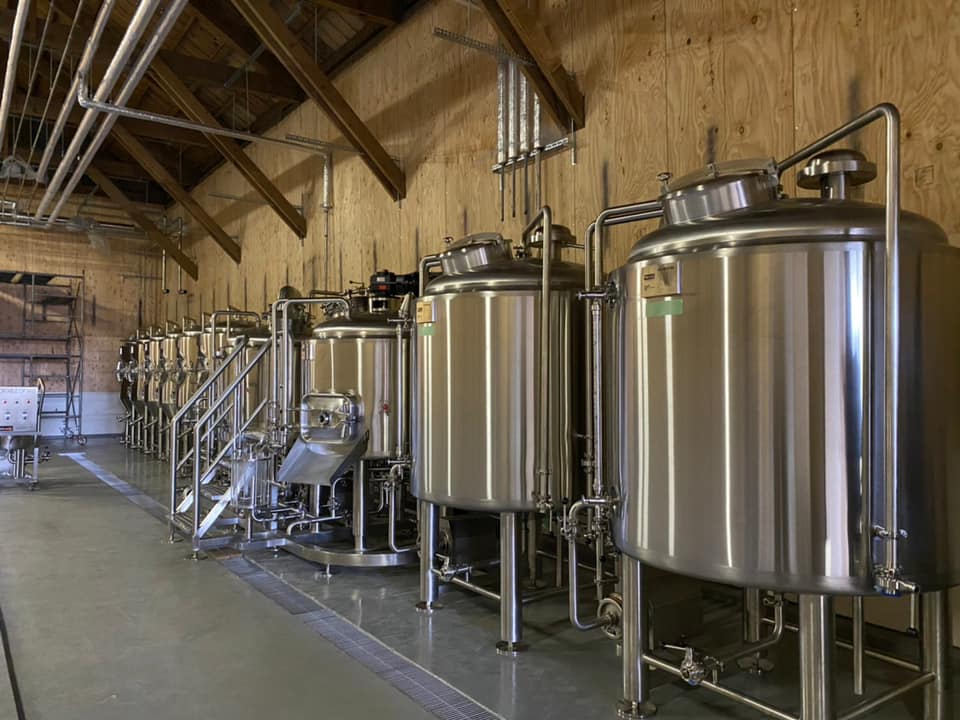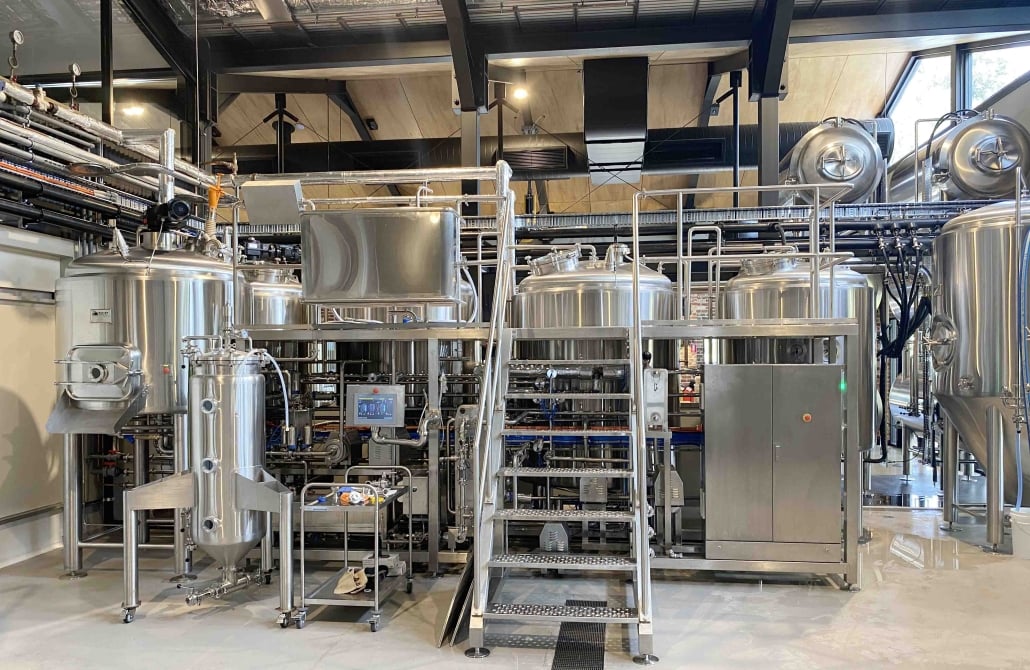
Microbrewery Equipment
Customized Brewing Solutions for Small and Medium Breweries.
Beer brewing equipment installations can be found in restaurants, pubs, and bars all over the world. They are not just there to provide people with something interesting to look at: microbreweries produce craft beer for visitors and customers to drink on the premises, for sale at select distributors, and for mail order deliveries.
Want to expand or build your brewery?
YoLong offers brewery equipment financing options to help you get started up and operational in the shortest time.
Nano Brewery Equipment (1BBL-5BBL)
Brewpub Brewing Equipment(5BBL-10BBL)
Microbrewery Equipment (10BBL-20BBL)
Commercial Brewery Equipment(20BBL-50BBL)
 24HL micro brewery
24HL micro brewery 15BBL 4v micro brewery
15BBL 4v micro brewery 30HL micro brewery
30HL micro brewery 30HL brewhouse
30HL brewhouse 24HL brewhouse
24HL brewhouse 20BBL brewhouse
20BBL brewhouse 5HL micro brewery
5HL micro brewery 5BBL micro brewery
5BBL micro brewery
Essential Microbrewery Equipment
Selecting the appropriate equipment for your microbrewery will not only ensure the efficiency of your brewing process but also maintain the desired quality and flavor of your beer. Investing in high-quality equipment will also help minimize maintenance costs and reduce downtime.
brewing system
The heart of any microbrewery is the brewing system, which includes several key components:
Mash Tun
The mash tun is where the mashing process takes place. It’s designed to hold the grain and water mixture, called the mash, and maintain a consistent temperature to facilitate the conversion of starches into fermentable sugars.
Lauter Tun
The lauter tun is used to separate the sweet liquid, called wort, from the spent grain. It features a false bottom with slits or perforations to allow the wort to pass through while holding back the grain.
Boil Kettle
The boil kettle is where the wort is boiled and hops are added. Boiling serves to sterilize the wort, concentrate the sugars, and extract bitterness and aroma from the hops.
Whirlpool
The whirlpool is used to separate hop matter, proteins, and other solids from the wort. By creating a whirlpool effect, the solids are forced to the center of the vessel, making it easier to transfer clear wort to the fermentation tanks.
Fermentation and Storage
After the brewing process, the wort needs to be fermented and stored:
Fermenters
Fermenters are vessels where the wort is mixed with yeast and fermentation occurs, converting sugars into alcohol and carbon dioxide. They are typically made from stainless steel and feature a conical bottom to facilitate yeast harvesting and removal of sediment.
Bright Beer Tanks
Bright beer tanks, also known as serving or conditioning tanks, are used to store the beer after fermentation and filtration. These tanks allow for carbonation and clarification, and they maintain the beer’s freshness and flavor before packaging.
Filtration, Carbonation, and Packaging
To ensure the final product is clear and carbonated, additional equipment is needed:
Filters
Filters are used to remove any remaining yeast, proteins, and other particles from the beer, resulting in a clear and bright final product. There are various types of filters available, such as plate and frame filters, cartridge filters, and diatomaceous earth filters.
Carbonation Equipment
Carbonation equipment allows you to control the level of carbon dioxide dissolved in your beer. This can be achieved through natural carbonation during fermentation or by using a carbonation stone, which forces CO2 into the beer under pressure.
Kegging and Bottling Systems
Once your beer is filtered and carbonated, it’s ready to be packaged. Kegging systems enable you to fill kegs with beer, while bottling systems allow you to fill bottles or cans. Both systems ensure minimal oxygen exposure, maintaining the freshness and quality of your beer.
Additional Microbrewery Equipment
Besides the core equipment, there are other essential items for your microbrewery:
Cooling and Temperature Control
Temperature control is crucial throughout the brewing process. Glycol chillers and heat exchangers are commonly used to maintain the desired temperatures during mashing, fermentation, and storage.
Cleaning and Sanitation
Keeping your equipment clean and sanitized is vital to prevent contamination and ensure the quality of your beer. Invest in cleaning equipment, such as chemical cleaning agents, spray balls, and CIP (clean-in-place) systems.
Quality Control and Lab Equipment
Quality control is essential for consistent, high-quality beer production. Basic lab equipment, such as hydrometers, refractometers, and pH meters, can help you monitor and control important parameters like gravity, alcohol content, and acidity.
Microbrewery equipment manufacturers
There are numerous microbrewery equipment manufacturers worldwide that provide a variety of brewing systems, fermenters, and other essential components for small-scale brewing operations. Here are some of the top manufacturers:
| Company | Country | Description |
|---|---|---|
| SS Brewtech | United States | A renowned manufacturer of high-quality stainless steel brewing equipment, offering a wide range of products, from fermenters to brewhouses. |
| BrewBilt Manufacturing | United States | Specializes in the design and fabrication of custom brewing equipment, including brewhouses, fermentation vessels, and other brewing components. |
| Blichmann Engineering | United States | Provides innovative, high-quality brewing equipment, such as brewhouses, fermenters, and control systems, for both homebrewers and professional breweries. |
| BrauKon | Germany | A leading German manufacturer of brewing equipment that offers a variety of systems, including brewhouses, fermentation tanks, and milling equipment. |
| Yolong Brewtech | China | A leading Chinese company specializing in designing and manufacturing brewing equipment for the beer, wine, and beverage industry. Exported to 40+ countries. |
| Simatec Impianti | Italy | Provides complete brewing solutions, including brewhouses, fermenters, and control systems, tailored to the needs of each client. |
Why does a commercial microbrewery need premium quality brewing equipment?
There are many reasons why a microbrewery needs premium quality brewing equipment. Breweries expand their premises and experiment with new beer recipes all the time. When they do this, they need to ensure they have access to the latest brewery technology; equipment that has been manufactured to the strictest, highest international standards in the world. On top of this essential criteria, all microbreweries operate according to an extremely tight budget.
Premium quality equipment and supplies are required when a commercial microbrewery needs to expand the current brewery facilities or extend operations to another site. When a new division or different site location are planned, commercial brewers need a specialist in brewery design, manufacture, transport, and installation to undertake the commission. The company they choose for this must also be able to complete the job in time and within budget.
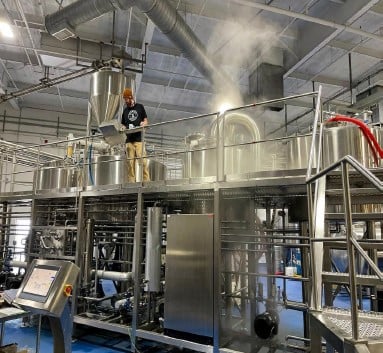
Why choose Yolong microbrewery equipment?
YoLong manufactures custom micro brewery equipment on a case by case basis. The size and capacity of the brewhouse depends on what scale beer production is planned by the client. Choosing which micro brewing equipment is best for a micro brewery startup or automated microbrewery can be a fairly complex undertaking. This is why the YoLong help desk is kept busy with craft beer brewmasters’ inquiries about how to build a microbrewery suitable for the premises (size) and output (capacity), whether it is for an expansion or new micro brewery startup cost.
Micro brewing equipment has different levels of automatic control. A higher level of automatic function can save a brewer’s labor, however a fully automated microbrewery does cost more.
The YoLong team divides the problem of size, capacity, and budget according to expected microbrewery production.
YoLong microbrewery brewing equipment installation is highly durable and easy to install, no matter where you plan on positioning the setup. We pride ourselves on providing an uncomplicated microbrewery design layout for every YoLong microbrewery system. Craft brewers want perfect results every time, and our systems are designed to facilitate that at each step.
YoLong microbreweries enable beginner brewmasters and craft beer professionals alike to produce deliciously drinkable beverages every time. Every piece of YoLong microbrewery equipment is custom designed as a combination of the brewers’ ideas and input linked to that special beer formula or recipe you want to create.
These configuration suggestions are great for small to midsize breweries producing up to two brews per day, and will give you an idea of initial layout and design.
Because we specialize in building microbrewery equipment, manufacturing and producing to the highest exact specifications on a global level, we are able to offer microbrewery equipment for sale in almost every part of the world.
Every stage of our brewery equipment production process is rigorously overseen and seamlessly finished, before being thoroughly tested ahead of shipping and installation approval. Nothing less than absolute engineering perfection is accepted.
No matter how extraordinary your request, we can handle it. At YoLong, we understand there are many beer brewery masters out there, and if you have come up with an ingenious way to brew beer, you can rely on us to bring your dream to reality. We can work off patented blueprints or even help you to perfect your concept, design, or project with our in-house team of experts.

